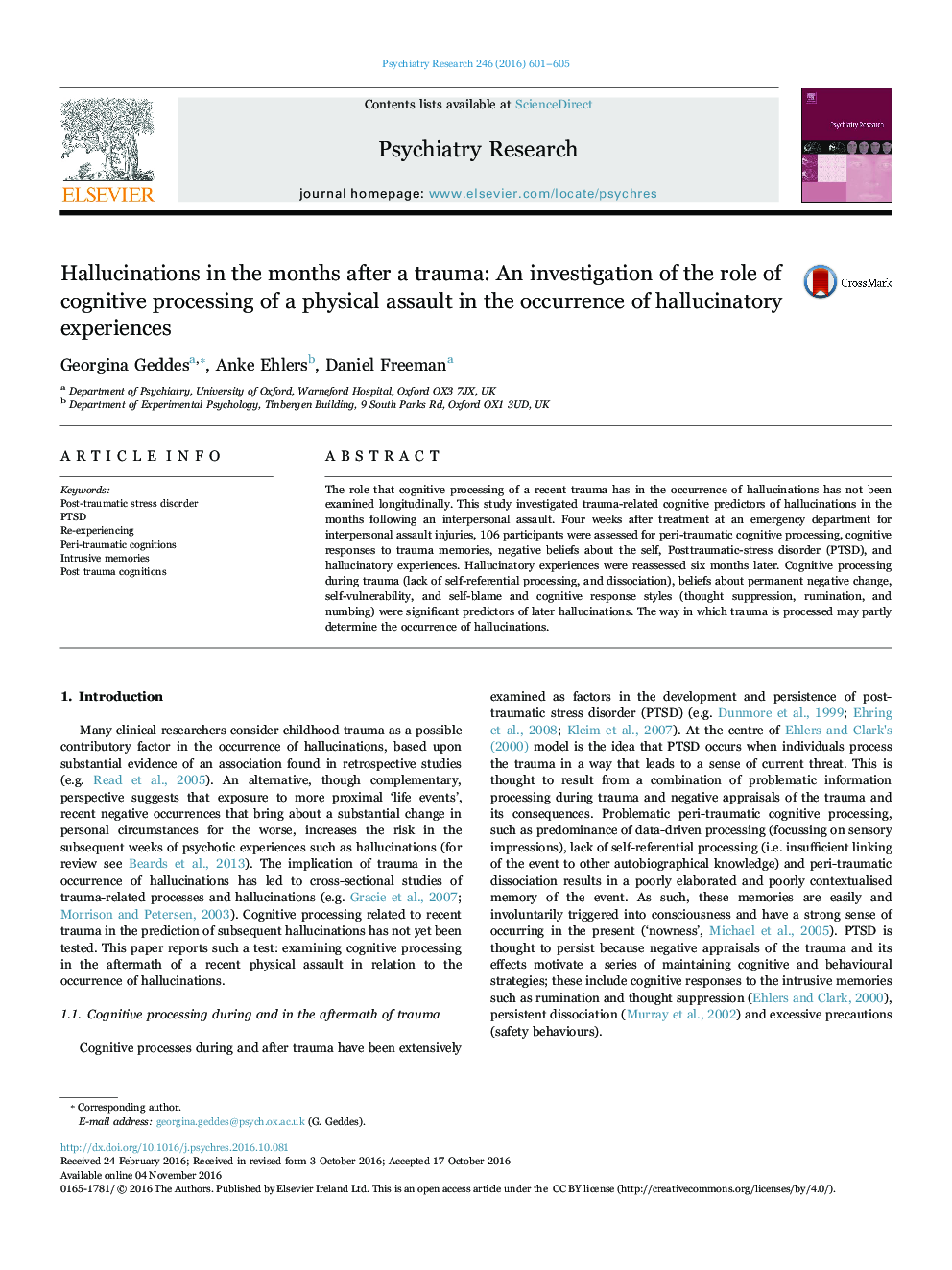| کد مقاله | کد نشریه | سال انتشار | مقاله انگلیسی | نسخه تمام متن |
|---|---|---|---|---|
| 4933841 | 1433800 | 2016 | 5 صفحه PDF | دانلود رایگان |
- The first longitudinal investigation of trauma-related cognitive predictors of hallucinations.
- A range of peri- and post traumatic processing predicted later hallucinatory experience.
- The way in which trauma is processed may partly determine hallucination occurrence.
- The main weakness of the study was that it was a secondary analysis of an existing dataset.
The role that cognitive processing of a recent trauma has in the occurrence of hallucinations has not been examined longitudinally. This study investigated trauma-related cognitive predictors of hallucinations in the months following an interpersonal assault. Four weeks after treatment at an emergency department for interpersonal assault injuries, 106 participants were assessed for peri-traumatic cognitive processing, cognitive responses to trauma memories, negative beliefs about the self, Posttraumatic-stress disorder (PTSD), and hallucinatory experiences. Hallucinatory experiences were reassessed six months later. Cognitive processing during trauma (lack of self-referential processing, and dissociation), beliefs about permanent negative change, self-vulnerability, and self-blame and cognitive response styles (thought suppression, rumination, and numbing) were significant predictors of later hallucinations. The way in which trauma is processed may partly determine the occurrence of hallucinations.
Journal: Psychiatry Research - Volume 246, 30 December 2016, Pages 601-605
